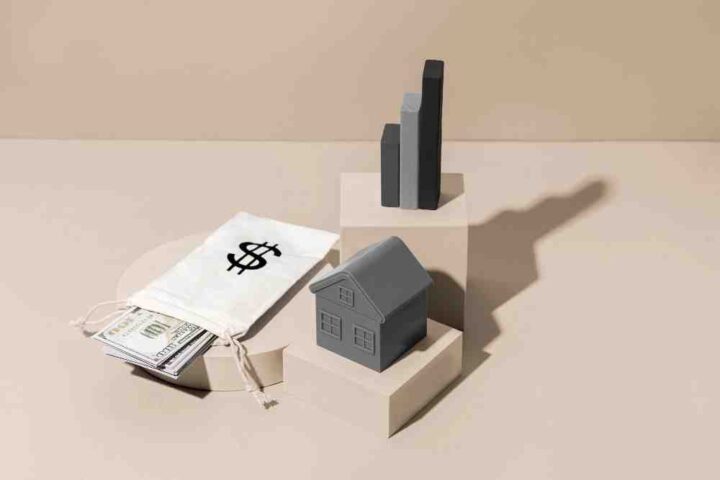Smart Property Management Tips for New Landlords
Managing a rental property is a unique and rewarding experience, especially for new landlords. It’s an experience that blends business savvy with a personal touch, requiring a careful balance of skills and strategies to be successful.
Whether you’re renting out a single-family home, an apartment, or several units, understanding the essentials of property management is key.

This guide is tailored to help you, as a new landlord, navigate through the various aspects of property management.
From legal responsibilities to tenant relations and financial planning, we’ll cover the crucial elements that can make or break your experience in the rental industry.
So, let’s get started!
Be Aware of Your Responsibilities
As a landlord, your responsibilities extend beyond simply owning a property and collecting rent. It’s crucial to be aware of property management’s legal and operational aspects to ensure a smooth and trouble-free experience.
Understanding Legal Obligations
Local and federal housing laws bind you; ignorance is not an excuse. Familiarize yourself with tenant rights, fair housing regulations, and local property codes. This knowledge is not just useful; it’s crucial in avoiding legal pitfalls. Stay up-to-date with any changes in the law that may impact your role as a landlord.
Prioritizing Property Maintenance
Keeping your property in excellent condition is not just for appearances; it’s essential for the well-being of your investment. Regular maintenance not only attracts and retains tenants but also prevents costly repairs. Establish a routine check-up schedule for electrical systems, plumbing, heating, and cooling systems. Addressing maintenance issues promptly ensures the safety and satisfaction of your tenants. This can be difficult to keep track of if you have several properties, especially when it comes to adding up the expenses associated with repairs of all kinds happening at any given time. It’s for this reason many landlords choose to work closely with apartment property managers (or those for houses) who collate repair requests in order to priority so that the landlord can deal with them effectively, whilst at the same time being immediately aware of the spending required for all the repairs.
Make Use of Technology
Using technology can significantly streamline your property management tasks. You can use easy and efficient software to manage your rental process. However, investing in Rental Management Software Solutions offers an array of tools to manage your properties efficiently.
From tracking rent payments and maintenance requests to facilitating tenant communication and generating financial reports, these solutions can save you time and reduce the hassle of manual management. Consider investing in such software to simplify your landlord responsibilities and enhance the tenant experience.
Prioritize Financial Management
Effective financial management is the foundation of a successful property management venture. You need to be both a landlord and a financial strategist.
Creating a Realistic Budget
Begin by creating a realistic budget for your property. Consider both fixed costs like mortgages, taxes, insurance, and rental building property management fees, as well as variable expenses such as repairs and maintenance. A well-thought-out budget ensures you’re financially prepared for the ups and downs of property ownership.
Understanding Tax Implications
Rental income is taxable, and understanding the tax implications is crucial for financial planning. Keep detailed records of your property-related income and expenses, as many of these can be tax-deductible. Consult with a tax professional specializing in real estate to gain valuable insights and strategies for optimizing your tax situation.
Building Tenant Relationships
Your relationship with your tenants goes beyond lease agreements; it’s about creating a positive and respectful living environment.
Effective Communication
Clear and prompt communication with your tenants is vital. Establish open channels of communication and be responsive to their needs and concerns. A landlord who listens and takes action fosters a positive landlord-tenant relationship, which can lead to longer tenant retention and a more pleasant renting experience for both parties.
Respect Privacy and Boundaries
While you own the property, it’s your tenant’s home. Respect their privacy by giving proper notice before visits, inspections, or repairs. Maintain professional boundaries in all interactions, ensuring tenants feel comfortable and secure in their rented space.
Dealing with Challenges
Challenges are part of the property management journey, and how you handle them can make all the difference.
Proactive Maintenance
Be proactive in addressing maintenance issues. Promptly address tenant repair requests to keep them happy and ensure that minor problems don’t escalate into major, costly issues. Regular maintenance preserves the property’s condition and contributes to tenant satisfaction.
Managing Difficult Situations
You may encounter challenging situations such as late rent payments, lease violations, or disputes. In these cases, it’s essential to handle matters firmly but fairly. Follow legal and ethical considerations in all dealings, seeking easy solutions when possible and resorting to legal action only when necessary. A balanced approach ensures a harmonious landlord-tenant relationship while protecting your interests.
Concluding
Stepping into the role of a landlord is a significant responsibility, but it’s also an opportunity to grow your investment and build lasting relationships. By understanding your responsibilities, using technology, managing finances wisely, and handling challenges effectively, you’ll be well on your way to becoming a successful landlord. Remember, every challenge is a learning opportunity, and every success is a stepping stone to greater achievements in your property management journey.


